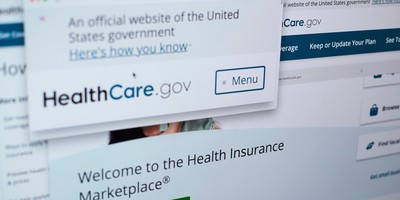Welcome to the Barack Obama bear market. On Inauguration Day, the official beginning of the era of “hope” and “change,” the Dow stood at 8,281. On Friday, it closed at 6,626 – the fastest drop for any president in more than 90 years. Given his track record so far on economics, no wonder Obama wants to talk about health care instead.

But before Americans decide to trust the President to “reform” the greatest and most innovative health care system in the world, they might want to take a look at the Administration’s approach to addressing the nation’s most pressing crisis. What policies have Obama and his team presented to reassure the markets and offer the promise of stabilization and renewed growth?
The short answer: None. Rather, the Obama team has inadvertently (one hopes) followed a course that has succeeded only in depressing the market by spooking Wall Street and heightening the climate of fear. Industry by industry, the Administration has sown the seeds of uncertainty through its policy pronouncements and trial balloons over the past month.
How can energy stocks prosper, given Obama’s embrace of cap and trade legislation – which, studies show, would result in electricity prices jumping by 5-15% by 2015, natural gas prices up by 12-50% by 2015, and gasoline prices up by 9-145% by 2015? How can bank stocks stabilize and rise when the administration allows talk of nationalization? And when the President suggests that health care reform might be outsourced to a Congress led by Nancy Pelosi, what does anyone expect that to do to health care and insurance industry stocks?
President Obama’s budget continues the assault on the market. The significant cuts he’s ordered in national defense are bound to drive defense industry stocks lower. And by proposing limits on deductions for mortgage interest, local property taxes and capital gains exclusions on up to $500,000 in sale profits, he’s aiming squarely at the housing and banking industries – areas that must be helped, not hurt, before the economy will recover.
Recommended
What’s most remarkable is the President’s apparent inability to grasp the impact of the market’s fall on ordinary people. Speaking last week, he analogized the market’s fluctuations to a campaign tracking poll – using, perhaps, the only frame of reference his limited experience offers. But the analogy is a flawed one.
Every time the market falls, real people lose real money – in their retirement plans, in their 401(k)’s, in their children’s college funds. More than half of American households are invested in the market through direct ownership, pension plans, or retirement funds. And that’s a world of difference between the daily ups-and-downs in a candidate’s popularity – especially when the market’s movement has been dramatically and overwhelmingly in one direction.
President Obama continues to insist that the economy can recover only through a massive overhaul of health care and environmental policy. More than anything, however, his continued calls for sweeping – but as yet undefined – changes only magnify the worry and insecurity that are driving the market’s downward spiral.
Throughout the President’s relatively short and extremely lucky career, he’s advanced so quickly that there’s never been time to gauge the success of his previous efforts before he’s moved on to a better job or bigger opportunity. But Barack Obama is now President of the United States. That’s a job that should be big enough for anybody. And public confidence can’t be sustained simply by rhetoric read from a teleprompter; it has to be earned, through cold, hard results.
Given the scope of the changes he wants to make in everything from health care to energy – and the less-than-impressive outcome, so far, of his efforts to address the economic crisis – it’s time for the President to focus on getting results in one area before he moves on to others. At this point, it’s entirely fair for Americans to tell President Obama: First things first, please.

























Join the conversation as a VIP Member